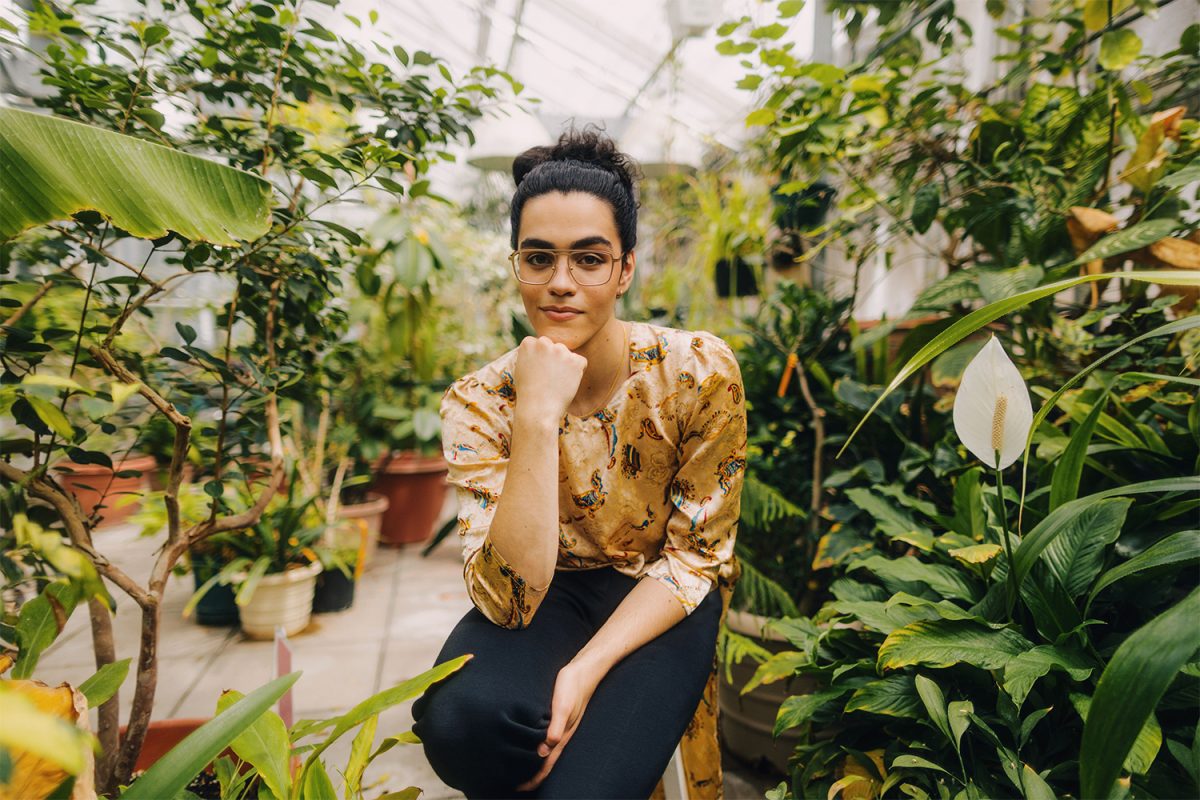With their thirst for knowledge, dedication to their craft, and natural leadership skills, it is no wonder University of Iowa student Paras Bassuk has been named UI’s 23rd Rhodes Scholar.
Bassuk is one of only 32 students nationwide to win the postgraduate opportunity in 2024, a fully funded program that allows recipients to study at the University of Oxford.
According to a press release from the Office of the American Secretary of the Rhodes Trust, nearly 3,000 students began the application process, and 868 were invited to appear for interviews. The UI is the only member of the Big Ten Conference with a 2025 Rhodes Scholar and one of only four public universities.
The Rhodes Scholarship process was a long one, Bassuk said, with the application process beginning in May with the opportunity to submit up to eight letters of recommendation, as well as an institutional endorsement.
Fifteen finalists are chosen from each of the 16 districts within the U.S. and selected for interviews, which, for Bassuk and all other finalists from District 12, took place in Chicago in November. After a day of interviews, finalists immediately found out if they were selected. Bassuk recalls that the moment they found out felt like a moment in a reality TV show.
“I was stunned. I tried not to come in with high expectations because I knew that no matter what the outcome was, it wouldn’t be bad,” they said. “I had already gotten a lot out of the experience just from applying and meeting other finalists.”
Bassuk, a psychology major, has diverse experiences in science, music, and advocacy, which were key factors in their selection, said Office of Scholar Development Director Kelly Thornburg.
Thornburg said Oxford is a good fit for a self-motivated student such as Bassuk. They also have an unusual resource in the Centre for Socio-Legal Studies, which is directly in line with the kind of work Bassuk wants to do long-term.
During their time at the UI, Bassuk has been involved in research that will prepare them well for their time at Oxford, Bassuk said. They initially started working alongside Ece Demir-Lira in the Development, Experience, and Neurocognition, or DEN, Lab.
“I was really interested in studying the relationship between social inequality and child development,” they said. “I wanted to see how access to education was a factor in child development.”
Following that research, Bassuk continued working with Demir-Lira on another project in her lab, studying parent-infant neural synchrony, which refers to how parent and infant brains sync up when interacting with each other.
“Every social interaction we have creates something bigger than itself, which I think is an underlying theme of my interests,” they said.
Demir-Lira recalled Bassuk being one of the top students in her research methods classes, which had over 200 students. Following their time in Demir-Lira’s class, Bassuk expressed interest in research and has since presented their findings at multiple conferences and even published a paper with Demir-Lira.
“I think they are just the whole package. Obviously, they have very strong analytical skills, but at the same time, I think they are very creative,” Demir-Lira said. “Overall, their motivation, intellect, and personality make them an excellent candidate for the Rhodes Scholarship.”
RELATED: Nontraditional UI student awarded $30,000 Truman Scholarship – The Daily Iowan
Now, Bassuk is doing research alongside Ethan Kutlu in the VoiceLab, a psycholinguistics lab. As a heritage Spanish speaker, Bassuk said language has always motivated them academically. Their research with Kutlu involves social language research and how our social labels influence the way we perceive other people.
“Something that has always struck me is this ability to express concepts in different ways, or even different concepts in one language that cannot be expressed in the same way in another,” they said.
Kutlu said Bassuk stands out to him due to their interest in conducting research for the sake of science, making inclusive policies, and dedicating themself to building a community and eliminating the harmful treatment of minoritized communities.
“Their primary goal is using science to make policies that are inclusive and that are really just capturing globally the situations that we are facing all around the world,” Kutlu said. “It’s important for students like Paras to know Paras exists.”
In addition to all of their research, Bassuk is also a drummer and bassist for several bands, actively participates in the Spanish conversation club, previously held roles at the Pride House and in student government, runs their photography business, and is currently an intern with the American Civil Liberties Union.
“What really stuck out about the Rhodes process is how much they value candidates who are well rounded, in that they devote time and attention and care to all the things that make them who they are,” Bassuk said.



